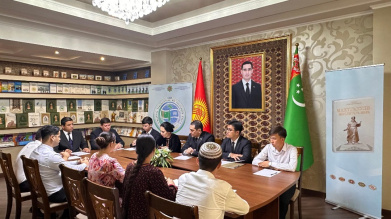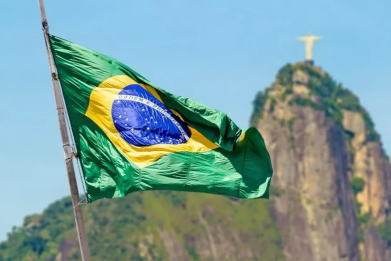“Hoş geldiñiz” to Catholic Christmas in Turkmenistan
25.12.2022 | 15:10 |Christmas, which Catholics all over the world celebrate on December 25, is one of the most important Christian holidays, and in many countries it is large–scale, solemn and fun.
Despite the fact that the Catholic community in Turkmenistan is small, it also has its own traditions of celebration and its own unique attributes, combining biblical motifs with national flavor.
For example, the Nativity scene, a small installation with figurines reproducing the scene of the birth of Jesus Christ, includes a hut very similar in round configuration to a Turkmen yurt decorated with national ornaments. Next to her are the magi, who arrived on camels, and shepherds, who settled down near tamdyr – a traditional clay oven for baking bread products.
Such a national interpretation in the festive symbolism was given to the place in Bethlehem where the baby Jesus was born…
On the Catholic Christmas Day, ORIENT had a conversation with Father Andrzej Madej, cultural attache of the Apostolic Nunciature of the Vatican. He has been fulfilling his mission in Turkmenistan for more than 25 years, and during this time he has become a well-known personality in the public life of the country.

– Father Andrzej, we congratulate you on the bright holiday of the Nativity of Christ. Tell me, what is the main significance of this event, which even after more than two millennia remains so important?
– We celebrate the Nativity of Jesus Christ – the event when God became a Man. This is good news, which sounds like a fairy tale, but it's a fact, a story! The history of the salvation of mankind. God, in order to bring his love to man, became one of us two thousand twenty-two years ago. According to God's plan, his human birth took place in a stable. But perhaps this is the divine plan? The Almighty has chosen a path for himself among us. God incarnated into man in the name of our salvation…

– How is Catholic Christmas celebrated?
– This holiday always begins in the family. This is the most important thing. It is considered good to have 12 dishes during the gala dinner, according to the number of apostles. Then Catholics go to the church, where the most important divine service is performed – the holy Liturgy. Parishioners praise the Lord God for the great deeds he has done in the name of people, for their liberation from sin. After the service, we are in no hurry to part – we drink tea, chat, sing Christmas songs, dance ... In a word, we rejoice!

– Tell me, when did Christianity begin to penetrate into our region?
– Archaeologists give evidence that Nestorians appeared here in the first centuries of our era. They were persecuted in Europe and found refuge here.
(Ed. Nestorianism is a dogmatic trend in Christianity that sees in Jesus Christ two subjects – the son of God and man. Named after Nestorius, Archbishop of Constantinople (428-431). The centers of Nestorianism were, among others, Turkmen Merv, Afghan Herat, Uzbek Samarkand).
- Christianity is just over two thousand years old. But nowadays does the church use the achievements of the XXI century, for example, digital technologies?
– Both the church and the parishioners enjoy the benefits of civilization, for example, online broadcasts of divine services, etc. are carried out. In conversations about religion, about human values, it is possible and necessary to use different formats. But as for confession, there is no digital alternative here, it can only be in personal contact between a person and a priest.

– Tell me, Father Andrzej, how are Catholics living in Turkmenistan these days?
– We came here, first of all, as diplomats of the Holy See. If someone comes to us for prayer, we say: "Hoş geldiñiz! Welcome! We are glad to welcome everyone!"
We immediately established very friendly relations with all faiths in Turkmenistan. For 26 years we have found mutual understanding here with Muslims, Orthodox Christians, and representatives of other faiths. And there is nothing surprising in this, because Turkmenistan has always been a multinational and multi-confessional country, various religions have coexisted here since ancient times and coexisted tolerantly.

– During your long-term mission in Turkmenistan, can you remember which Christmas was the most unusual for you?
– As for your question directly, yes, there were extraordinary Christmas holidays in Turkmenistan for me. For example, in 1998, when, among others, more than a hundred Filipinos who were working in Ashgabat at that time came to the service. They sang Filipino Christmas songs and set the tone for the whole event, which once again suggests that it is not so important where you are from, who you are by profession and nationality – the main thing is to be a person!
– Wish something to our readers on this bright holiday...
ORIENT
Editorial photo
Video: Suleiman Charyev











